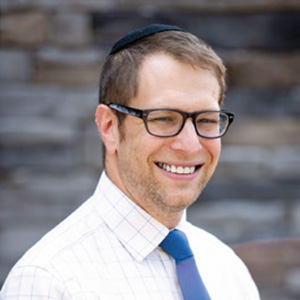
“The future belongs to those who believe in the beauty of their dreams.” “Believe in your dreams, no matter how impossible they seem.” “Don’t tell me the sky’s the limit when there are footprints on the moon.” These quotes are three of hundreds of suggestions when you Google “quotes about following your dreams.” We hear so much about dreaming big, and yet we often struggle to figure out what our dreams really are. What do we want for ourselves? What would we be if we could be anything? Why is this so hard? Parshat Miketz (along with last week’s parsha) may provide a clue.
One similarity between Yosef and Pharaoh’s dreams is the appearance of items that the dreamers had no business dreaming about. Yosef, whose family has been shepherding for four generations, has no reason to imagine himself and his brothers gathering grain. Additionally, his second dream involves the sun, moon and stars bowing to him. Including the solar system in worship was not exactly what Hashem required from Yaakov and his sons. Similarly, Pharaoh reigned over a society in which farming ruled the economy. Grazing animals were not really something the Egyptians focused on; these animals really should have appeared in Yosef’s dream.
Clearly Yosef and Pharaoh had no problem “dreaming big.” Both easily imagined what was beyond their lives and incorporated these unexpected items into their thoughts about the future. However, two other men, who appeared in last week’s parsha, had no such success. Neither Pharaoh’s sar ha’ofim nor his sar hamashkim seemed to be particularly creative dreamers. The chief baker dreamed about baskets of bread, and the chief bartender dreamt of serving wine. Can contrasting Pharaoh and Yosef’s dreams with those of the imprisoned royal servants help answer our original question? Keep reading to learn how.
Like Pharaoh’s servants, Chaya was having a hard time dreaming big. Normally, this wouldn’t be the biggest deal, but Chaya was preparing for high school applications and interviews. Each application required students to write essays about their futures. Additionally, everyone knew that high school interviewers always ask questions like “where do you see yourself in four years?” Chaya knew that in order to ace these applications and interviews, she needed impressive, honest and unique answers to these questions, for which she currently had none.
Every time Chaya sat down to outline an essay or practice interview responses, her ideas were basically the same boring responses that anyone could come up with: “I want to be a good person,” “I want to help others,” “I want to get into a good college,” “I want to learn a lot.” Chaya was feeling stuck and frustrated, and it showed on her face.
At dinner one evening, Chaya’s mother noticed how down Chaya looked and asked about it. This led to a conversation about Chaya’s recent struggles, after which her mother offered some interesting advice. Chaya’s mother suggested she try actual dreaming. Before going to sleep, Chaya should spend a few minutes reading the essay questions over and over again, and hopefully she could find her answers (or at least the start to them) in a dream. Her mom also suggested keeping a journal by her bed. Every time Chaya woke up she should write down everything she could remember about each dream, even in the middle of the night.
Considering nothing else had worked so far, Chaya agreed to give her actual dreams a try. For a few nights straight Chaya followed her mother’s advice, down to recording her dreams in the middle of the night. For a few nights, Chaya came up with almost nothing. However, on the fourth night of dream journaling, everything changed. When Chaya woke in the morning, she found pages full of dream notes, although she barely remembered waking up.
Chaya didn’t have time to read everything before heading to school, but upon returning home from school she ran straight upstairs to her room to read the notes. However, as excited as she was at first, she was equally as upset when she finished. All the dreams had the same theme, the fear of not fitting in. According to her notes, Chaya had dreamt about finding the perfect hydro flask, going viral on Tik Tok, and being voted most popular in her class. She had a nightmare where she couldn’t find her Champion sweatshirt on the day all her friends agreed to wear theirs. Chaya also had a scary dream about having her Instagram account deleted by her parents. (Chaya didn’t even have Instagram in real life!)
As Chaya finished reading all the notes, her mother walked in. Shaking, Chaya told her everything about the dreams. “Am I such a follower? Is that what I really think about?” Chaya asked. Her mother comforted her. “Don’t worry, dear. It’s normal for a girl your age. Let’s talk about it more.” Chaya and her mother continued the conversation over the next few nights, until Chaya recognized how she had been too concerned with the opinions of other people. Once she committed to being more concerned with being herself, the breakthrough came. Chaya wrote two beautiful essays, aced her interviews and never stopped dreaming big.
Sometimes we become trapped by things that don’t matter. We worry about being popular, having what everyone else has, and not being left out. We spend valuable time and energy on unimportant matters, making it difficult for us to focus on our dreams, goals and aspirations. This was the experience of the sar ha’ofim and sar hamashkim. They shared the same one concern—getting their old lives back—so it was all they could dream about. Yosef and Pharaoh were free men, left to dream beyond their current lives. May we all break loose of the small things that imprison us so that we may focus on who we are meant to be.
Shabbat Shalom!
By Yair Daar













